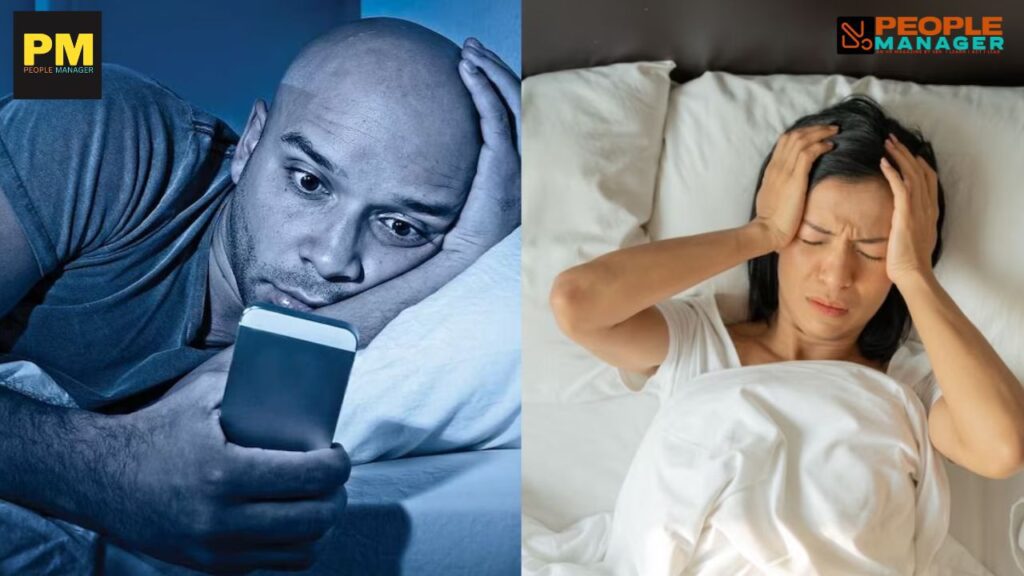Two thirds of professionals feel sleepy at work, survey report
"Although 29 percent of the city's population goes to bed just before midnight, they are up between 7and 8 a.m., and 49 percent of people do not feel refreshed after waking up," the eye-opening report says.

Two thirds of professionals feel sleepy at work, survey report
If you are a professional or business owner, this is an alarming sign for your personal health and the health of your business. In a loud wake-up call, a new survey has claimed that two-thirds of professionals feels sleepy at work and nearly half of them believe they suffer from the dreaded insomnia, according to a report from IANS.
However, this report presented the reaction of professionals living in Mumbai (Mumbaikars), but the situation is the same in all cities.
This survey, conducted by The Great Indian Sleep Scorecard (GISS), sleep solutions provider Wakefit.co, sought to decipher sleep patterns and trends among Indians.
Although Mumbai is known as ‘the city that never sleeps,’ the survey found that 70 percent of people here do not retire until after 11 p.m. — well after the ideal bedtime of 10 p.m.
“Although 29 percent of the city’s population goes to bed just before midnight, they are up between 7and 8 a.m., and 49 percent of people do not feel refreshed after waking up,” the eye-opening report says.
Interestingly, the GISS-2022 had found that 53 percent of Mumbaikars felt sleepy at work, which has now risen to 61 percent (2023) — though women outnumber men (67 percent) in this regard (56).
There is also a steep increase of 34 percent of Mumbaikars complaining of feeling “tired and exhausted’ after waking up in the morning this year compared to 2022.
“The high sleep deficit is one of the major causes of excessive daytime sleepiness, which leads to people nodding off at work.
Although maintaining a sleep-promoting environment in the bedroom is crucial, the report showed that 43 percent of Mumbaikars feel that the atmosphere in their bedroom is affecting their sleep,” the survey said.
Mumbai-based physician Dr. Himanshu Shah said that “sleep disturbance is now one of the major complaints among all patients who come with any ailment,” mostly resulting from anxiety and tension about the future for themselves and family.
Renowned natural therapist and acupuncture expert Dr. Mayie (Shubhangi) Deshmukh said that sleep problems have increased drastically in the last three years and especially after the pandemic, due to the anxiety factor and stress overload of people.
The late nights of Mumbaikars are attributed to digital scrolling, as it is a proven fact that for a healthy sleep, it is optimal to switch off the digital devices like cell phones, laptops, tablets, TVs etc. at least an hour before going to bed.
Unfortunately, a whopping 37 percent of “Mumbaikars” stay awake late into the night to surf social media, while 88 percent admitted to using their phones until just before bedtime,” and 90 percent woke up at least once or twice during the night – interrupting their sleep.
Dr. Shah said that “inadequate or no healthy sleep” affects people’s health, their productivity in their personal and professional lives, and indirectly, the country’s productivity.
The report also revealed that 31 percent of Mumbaikars “woke up in the night worrying about their future,” and another key factor plaguing nearly 35 percent of people is that they have fallen prey to ‘insomnia.”
The GISS-2023 found that 37 percent of Mumbaikars “sleep in places other than their bed,” which contributes to their miserable sleep problems, as having a dedicated sleeping space is central to building a positive, clean habit and thus promoting greater sleep affinity.
Dr. Deshmukh said there used to be only 8–10 patients per month with all types of sleep disorders, which has now tripled to nearly 25-30.
“I treat them without medication… Only with acupuncture and ‘Panchakarma’, the treatment cycle lasts between 2and 4 weeks, or a little longer for absolutely chronic patients,” Dr. Deshmukh told IANS.
The sleep problems are now glaring “as almost all patients are asking if it is due to vaccination,” and Dr. Deshmukh urged the government to seriously investigate this aspect as a priority before the situation worsens.
For GISS-2023, more than 10,000 people in different cities, age groups and demographics were surveyed from March 2022 to February 2023, and about 210,000 responses were collected over the past six years, according to Wakefit.co
- Pernod Ricard India introduces Cheers VRorld, an industry-first VR-powered onboarding experience in the Alco-Bev sector - February 11, 2026
- Jio-bp Appoints Sareeta Bhatikar as Chief Human Resources Officer to Steer Next Phase of Growth - February 11, 2026
- India Keeps Hiring as Global Markets Slow: Michael Page India Salary Report-26 - February 6, 2026








